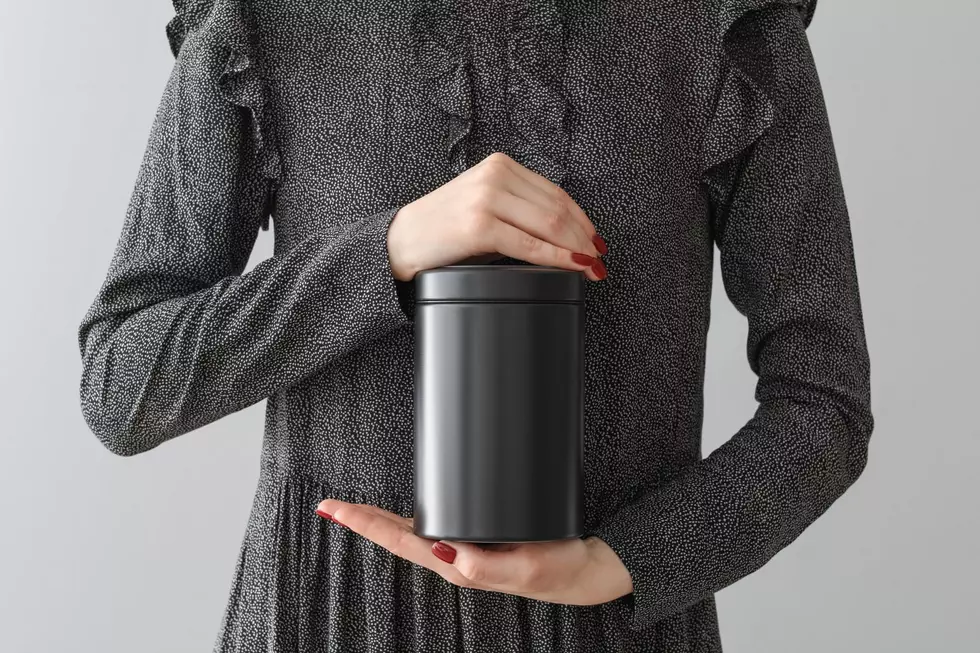
Why Side 2 of ‘Tattoo You’ Is Among the Rolling Stones’ Best Work
On Aug. 24, 1981, the Rolling Stones released the second side of Tattoo You. Yes, the Stones released the first side of Tattoo You on that day, too. And Side One is great. But Side Two proved the band could still put art above entertainment. In the whole of the Stones’ catalog, there’s nothing like the five-song stretch of "Worried About You," "Tops," "Heaven," "No Use in Crying" and "Waiting on a Friend.”
The LP starts by insisting magnetic machismo, risque hubris and recycled riffs will always be enough to sustain Mick Jagger and Keith Richards' status as rock gods. Then Tattoo You makes an about face into a string of songs featuring a band actually engaging in personal reflection, all while being perfectly content with laying down dirty, relaxed and lugubrious grooves, and then wallowing in them for 22 minutes.
Heading into the ’80s, the Stones ruled rock with as much market share as ever. The band had outlasted the Beatles, minted hits all through Led Zeppelin’s run and made short work of every craze from disco to reggae. The Stones’ 1978 tour put them in packed stadiums and arenas.
Releases such as Some Girls and Emotional Rescue showed they needed only to tweak their sound to continue selling millions of records. The band had become so good at what it did, it seemed like autopilot could take the Glimmer Twins from 1981 onward.
“'I'll still be playing rock 'n' roll when I'm in a wheelchair,'' Richards said at the time. ''As long as people want to hear it.''
Watch the Rolling Stones' 'Start Me Up' Video
Side One of Tattoo You comes hard. In a couple guitar sweeps, a few tough drum hits and some Jagger grunting and preening, “Start Me Up” instantly defines the Stones at 20 — totally inconsequential and irresistibly catchy (and rightfully the band’s biggest hit in three years). That unironic paean to Jagger’s sexual fortitude rolls right into other tasty rockers: the romp "Hang Fire,” the thrust and pulse of "Slave," old school rave-up "Little T&A," Chicago blues homage "Black Limousine" and the stomping "Neighbours." Then they toss all that ego and volume aside.
The second side begins with “Worried About You” and the lyric, “Sometime I wonder why / You do these things to me / Sometime I worry girl / That you ain't in love with me.” Could the giant egos and larger libidos of the Stones be in question? Gone is the band cheering “Start Me Up,” and in its place is an introspective set of ace songwriters and musicians facing middle age and wondering about their relevance.
The song, like much of the album, was written and recorded years earlier — this one during the sessions for 1975’s Black and Blue. But the band specifically decided to resurrect it and open the album anew with its slow burn soul, Jagger singing in a wounded falsetto and Richards jumping in on the chorus to echo the song’s sentiment with harmony vocals. The whole affair is downright tender, almost sweet. Charlie Watts and Bill Wyman are in no rush to get anywhere, and Billy Preston stops by for a bit of lovely electric piano. Jagger shuts down the earnest lament with a bit of regret: “Sure as hell I'm going to find that girl someday / Until then I'm worried / Lord, I just can't seem to find my way.”
Watch the Rolling Stones' 'Worried About You' Video
Next up is another outtake upcycled for Tattoo You, but “Tops” is barely a song. It’s more of a long vamp, a fat groove that has Jagger talking about taking a woman to the top but laying back enough that his coos outnumber his shouts. The groove basically serves as a bridge between the more traditional “Worried About You” and whatever “Heaven” is.
In the middle of Side Two, “Heaven” comes one of the Stones' oddest tracks. A fever dream put to tape, the song came together with Jagger singing and playing guitar, Watts behind the kit and Wyman doing the rest. One of only two songs crafted specifically for Tattoo You, the trio whispers and walks through a swirl of delicate noise. It riffs on psychedelia, funk and experimental music while also setting the stage for genres such as dream-pop and shoegaze.
“Heaven” evaporates into "No Use in Crying.” Like a sister song to “Worried About You,” it unfolds with similar slow, soul notes. But unlike “Worried About You,” “No Use in Crying” doesn’t wonder about life. It’s resigned: Love is gone, hope is gone, whatever was is over. Jagger sings, “Standing at the station / Gazing down the track / There ain't no train coming baby / I ain't never, never coming back” as if he were Clarence Carter writing a sadder sequel to “Slip Away.”
Watch the Rolling Stones' 'Waiting on a Friend' Video
The album and side close with “Waiting on a Friend.” The LP began with Jagger boasting that he’s with a woman that can “make a dead man cum”; it all ends with the singer opining, “Don't need a whore, I don't need no booze / Don't need a virgin priest / But I need someone I can cry to / I need someone to protect / Making love and breaking hearts / It is a game for youth.” For a man pushing 40 at the time, the rumination has a mature honesty and a sadly sober feeling to it.
“Waiting on a Friend” might be the most adult and clear-eyed song the Stones ever recorded. The guitar line has a simplicity that makes “(I Can't Get No) Satisfaction” sound like a Bach fugue. The rhythm section powers the track and yet can barely be felt. The piano hides in the back, politely accentuating minor moments. It’s as if everyone wants to build the barest frame to show off Jagger’s insight and a saxophone solo by Sonny Rollins that drives the track toward ecstasy.
The Stones wouldn’t stall here in the morass of middle age. They wouldn’t be the Stones if they did. The next album kicked off with the single “Undercover of the Night.” The new-wave-meets-hard-rock blowup featured political lyrics with plenty of sex, sleaze and force. But Side Two of Tattoo You serves as a reminder that the Stones have it in them to do slow, smart and curious as well as they do fast, blunt and wild.
Rolling Stones Albums Ranked
More From 100.7 KOOL FM










